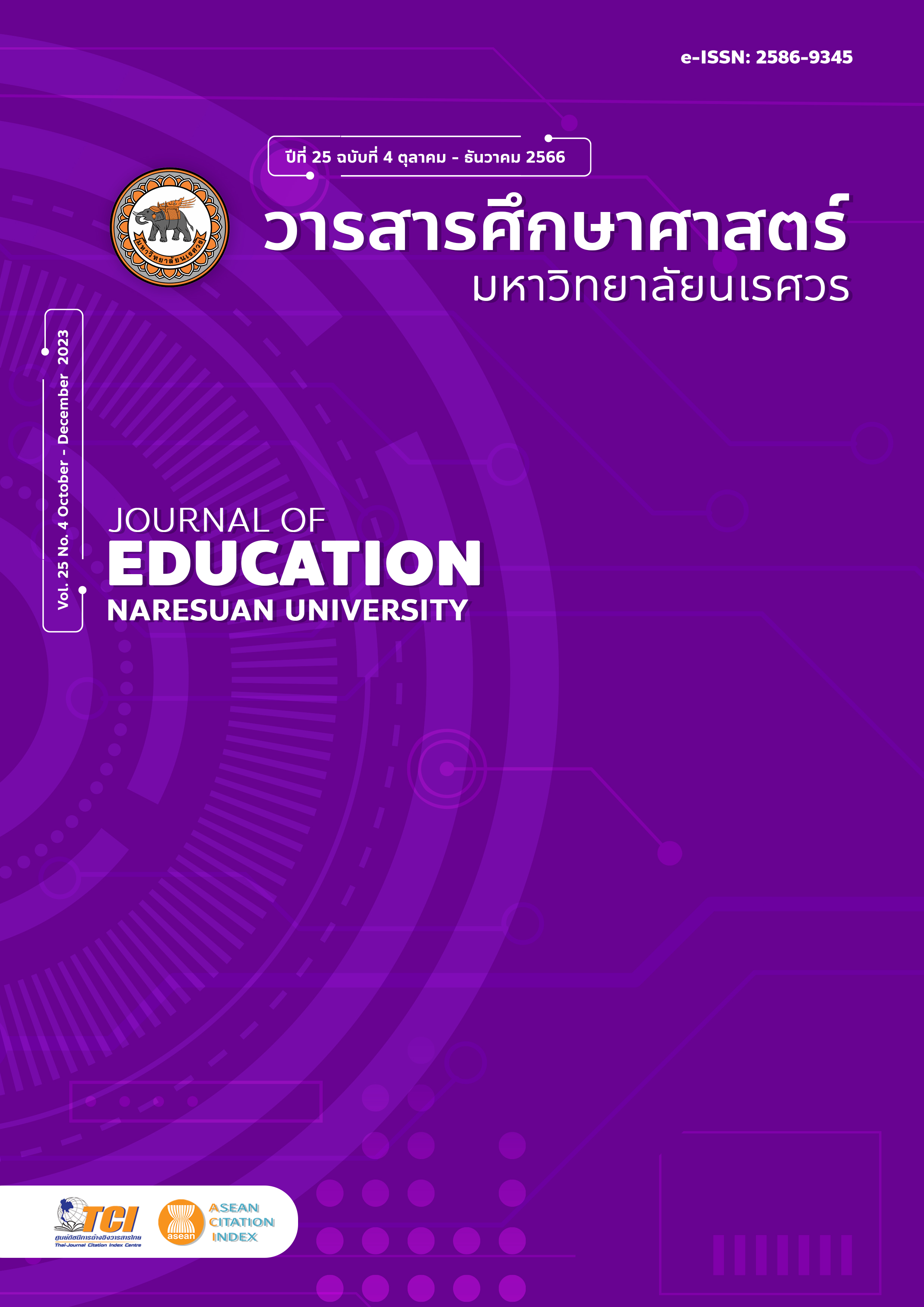DEVELOPING A MODEL OF BUDDHIST ECONOMICS EDUCATIONAL ADMINISTRATION: CASE STUDY BUDDHIST ECONOMICS FARMER SCHOOL
Main Article Content
Abstract
The objectives of this research were as follows: 1) to develop a model of education management guidelines according to Buddhist economics and 2) to evaluate the education management guidelines model according to Buddhist economics. The research process is divided into two steps. The first step is the development of an education management guidelines model in accordance with Buddhist economics. This stage is done by drafting the model of education management guidelines following Buddhist economics and examining its coverage and appropriateness through a 'focus group' discussion with eleven qualified scholars. The study issues used in this process were the 'coverage' and 'appropriateness' verifications on the model. The statistics used to analyze the data include the arithmetic mean and standard deviation. The second step is the evaluation of the education management guidelines model. At this stage, a connoisseurship was held with eight experts to evaluate the model. The variables used were the 'usefulness' and 'feasibility' evaluations of using the model. The statistics used included the arithmetic mean and standard deviation. This research has shown that the model of educational management in accordance with Buddhist economics has an appropriate approach, consisting of: 1) philosophy, 2) principles of the model, 3) purpose of the model, 4) management process, 5) applying the model, and 6) success factors.
Article Details

This work is licensed under a Creative Commons Attribution-NonCommercial-NoDerivatives 4.0 International License.
The owner of the article does not copy or violate any of its copyright. If any copyright infringement occurs or prosecution, in any case, the Editorial Board is not involved in all the rights to the owner of the article to be performed.
References
Brown, J. (February 27, 2020). Interview.
Kammitha, R. (February 20, 2020). Interview.
Kongkasawasdi, T. (2009). What is MBO. Retrieved November 10, 2017, from http://www.excelexperttraining.com/hr/2009/09/mbo.html
Kwankhao, P. (April 7, 2020). Interview.
Na Ayuddhaya, A. (April 10, 2020). Interview.
Office of the Education Council. (2009). Education Reform in the second decade proposal (2009 –2018). Bangkok: Prikwan Graphic.
Office of the National Economic and Social Development Council. (2012). The 11th National Economic and Development Plan (2012 – 2016). Bangkok: Office of the National Economic and Social Development Council.
Office of the National Economic and Social Development Council. (2017). The 12nd National Economic and Development Plan (2017 – 2021). Retrieved from http://www.nesdb.go.th/ewt_dl_link.php?nid=6422
Phanthasen, A. (2001). Buddhist economics. Bangkok: Amarin Printing and Publishing.
Phra Bhramkunabhorn. (2013). The dawn of education (14th ed.). Bangkok: Buddhadham.
Phra Bhramkunabhorn. (2014). Buddhist economics (14th ed.). Nakorn Pathom: Chor Chareon Interprint (Thailand).
Phra Dhammasakyavongvisudhi. (January 15, 2020). Interview.
Phra Medhivajirodom. (December 18, 2017). Interview.
Phra Pattanaphisut Inthaweero. (2014). The way of organic rice planting following the Sufficiency Economy of Suphanburi Farmer School (Master thesis). Ayutthaya: Mahachulalongkornrajavidhayalaya.
Rasmithet, B. (February 25, 2020). Interview.
Ruanglertpanyakul, V. (2006). Organic rice planting promotion by participatory learning process. Bangkok: National Research Council of Thailand.
Udomchokenamorn, C., Pongpan, P., Jeerasombat, S., Kenaphoom, S., & Sripacho, C. (2018). Buddhist development management. Humanities and Social Sciences Journal Rajabhat Ubon Rajathani University, 9(2), 169-181.
Worachakraiyanan, C. (September 17, 2019). Interview.


